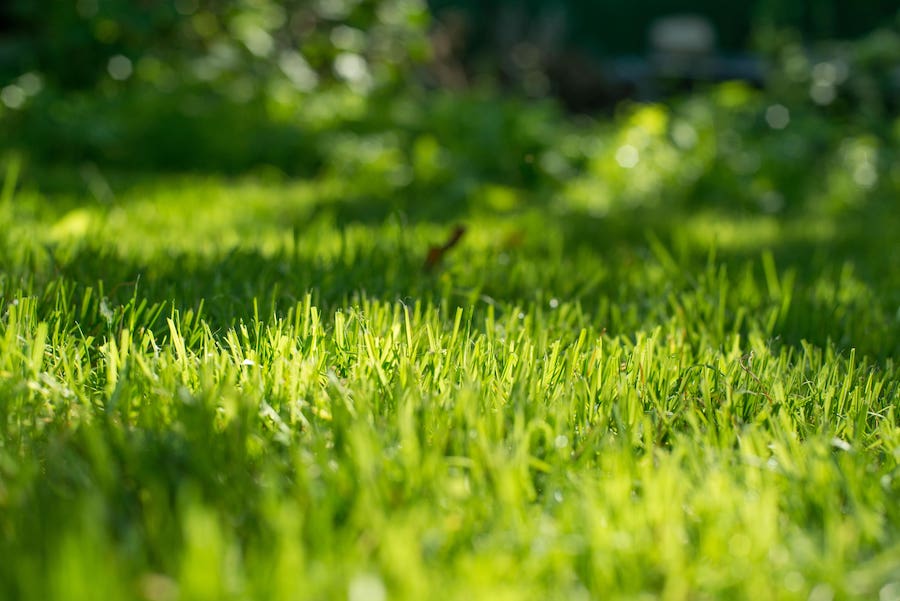What you really need to do in autumn to keep your lawn in shape
Setting blades higher, scarifying early and using organic feed will all help, says an expert
Lawns may not be looking as brown as they did this time last year, thanks to the rain we’ve had this summer. So, how much do we really need to do to keep our lawns in shape for the rest of the year and beyond?
“The secret of successful lawn care is sustainability – working with the right plant (native grasses), understanding the environment (where it’s living) and letting the grass do more of the work for you,” says lawn specialist David Hedges-Gower, author and chairman of the Lawn Association.
Whether you’ve had a summer of relentless heat or endless rain, either way, the autumn that follows is a chance to boost the lawn’s health, not just to recover from the summer, but to be ready to withstand whatever winter brings, he maintains.
View this post on Instagram
At this moment in the lawn’s annual cycle, it’s all too easy to make mistakes – so what do we really need to do in autumn?
“Sustainable lawn care is natural, uses fewer treatments by selecting the right ones, and develops a stronger lawn, which then does a lot of the work for you,” says Hedges-Gower, who offers the following tips to keep you on track.
1. Mowing must-dos

Ensure blades on your mower are sharp to avoid stress to grass
It’s not just about tidy-looking grass; when we mow, we’re actually pruning the grass plants to encourage stronger growth and spread where it matters – including sideways for our native bents and fescues. This simple process thickens up the sward, leaving less room for weeds and moss.
However, to prune properly, follow these guidelines:
Have sharp blades: These are absolutely crucial to good mowing, so don’t wait until spring to get the blade good and sharp. Blunt blades tear the grass, causing it stress, slowing its ability to take up food and water and dulling its colour.
Adjust cutting height: Every time you cut you remove valuable food stored in the leaf, so your autumn cuts are all to do with restoring health and vigour to the grass as it continues to grow, right up to the coldest part of the winter. Allowing a little extra length and cutting little and often is always better than an occasional blitz to ground zero.
Some people get other lawn restoration jobs we save for autumn wrong, he observes.
2. Scarification, moss and reseeding:

Make sure you scarify your lawn in good time
“An annual scarification is really useful for removing the build-up of organic material in the lawn (thatch, dead grass, etc). However, in autumn we are looking ahead to maybe six months of cold and inhospitable weather. Scarify too late and too hard and there may not be time for the scarified lawn to recover sufficiently.
“Be sure to scarify before applying liquid moss-control (don’t waste time using multi-use products that only do half a job) to ensure the FE (the iron within the liquid solution) reaches the base of the moss plant.”
3. Use native grasses

Native grass will naturally work to suppress weeds
If reseeding, avoid leaving this too late when germination is slower and the tender seedlings might be damaged by early frosts, he advises. And reseed with the right grass species – native bents and fescues – which will help you maintain a lawn that does most of the weed-suppression itself.
4. Autumn feed
“A good feed is a must as you prepare a lawn for the winter but, again, those multi-purpose products only do a partial job badly. You should also avoid polymer-coated fertilisers that will poison the soil with plastic. Instead, you need an organic feed like True Grass that delivers exactly what the plant requires and in the right quantities, while also nurturing the soil itself.”
5. Lose the ‘perfect lawn’ concept

An overly manicured lawn is often not the most environmentally friendly
“The iconic British lawn is immaculately trimmed, universally green and never turns brown. But not only is this not the lawn most people enjoy in their gardens; it is an archaic pipe-dream, completely at odds with promoting environmentally responsible gardening now and in the future,” he says.
“It is only the ultra-manicured lawns that consume huge volumes of precious water, fossil fuels, herbicides and chemicals to maintain their appearance. And this type of lawn should be the exception, not the norm, despite the impression given by aggressive product marketing.”
The Press Association
Latest posts by The Press Association (see all)
- Crunchy Chicken Caesar dip - April 17, 2025
- Could brisk walking boost your heart? - April 16, 2025
- Best spring-to-summer plants to fill the colour gaps - April 15, 2025
- Catherine tells how ‘spiritual’ connection with nature gives her peace in busy world - April 15, 2025
- Why weeds are worth cultivating – and eating - April 14, 2025




















